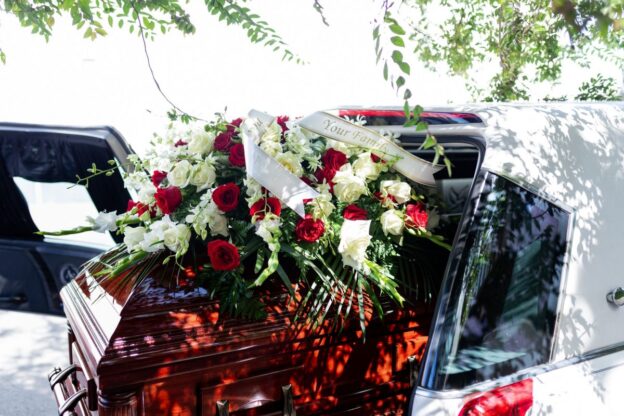The pervasiveness of sexual abuse and assault that last fall’s #metoo movement uncovered has left the Church wrestling with how to minister to those women and men who carry stories and bear wounds in our pews. I hear the Church asking questions like: What is our role in the wake of #metoo?
How can we preach light when they have kept so much pain in the dark?
What of the God who sets captives free when so many have been used as pawns in a game of power?
How can we teach love when that word has been used to manipulate or control?
How can we help them see the image of God in others and themselves when they have been conditioned to believe that their bodies are made for someone else’s pleasure?
How can we offer good news—hope— to those still in the darkness of the tomb?
While the pain that #metoo has uncovered will take years to heal, there are a few things we, as the Church, can do to bring healing and hope to those hurting.
First, we can listen.
For every story told, there are scores of others kept secret. This means our pews are full of people carrying the burden of untold assault. As the Church, we can invite these stories into the open and expose them to the light (Ephesians 5:13), stealing their power. Once revealed, they no longer have the power to shape the person’s life narrative. They can become events that happened to them, and not part of their identity, not who they are, releasing them from the captivity of shame and guilt.
Second, we can believe the stories.
Once we have created a safe space for stories to be shared—one in which there is no judgment or discrimination—if someone trusts us enough to hear their story of deepest hurt, we should believe them. The Church’s role is not to “find out what happened,” but to receive their account of experience as their truth. Rather than deem their testimony an idle tale (Luke 24:11), we are called to affirm their feelings, however messy or complicated, and trust that they are sharing honestly.*
Third, we can repent.
One of the impacts of the #metoo movement has been an awareness that sexual assault and harassment is not limited to Hollywood or boardrooms and newsrooms but reaches into every corner of our country and social strata, even the Church. At its core, #metoo names an abuse of power—the party with the most power in the relationship using their influence to control or take advantage of the other. As the Church, it would be foolish to believe we have not participated or contributed in some way. We can confess the ways we have corporately and personally upheld this power dynamic, repent and seek to turn it upside down (Luke 1:46-55).
Fourth, we can do better.
There is a cultural shift taking place in our country as a result of the #metoo movement, one that recognizes the value and dignity of everyone. As Christians who believe each person is formed in the image of God (Genesis 1:26), we should be leaders of this movement. We should be working for a time when it will be no longer socially acceptable to objectify or exploit any of God’s creation. We should be calling out oppressive systems that silence victims. We should be reminding a world desperately hurting that there a God who loves them, a Creator who calls them good (Genesis 1:31). We should share the good news that the same God who knows our deepest pain and shares our hurt came to redeem our suffering and restore all of creation. After all, this is the God who, in Jesus Christ, says, #metoo.
*As pastors, we are bound to pastoral confidentiality, although at times, mandatory reporting is necessary. For more information about mandatory reporting, visit: http://www.moumethodist.org/mandatoryreporting.
Ideas for Churches That Want to Change Culture in 2018
- Maintain and update the local church Safe Sanctuaries® policy. Train the church community on the policy.
- Require all leaders, even non-clergy leaders, to take boundary training.
- Post domestic violence and sexual violence hotline numbers in church restrooms.
- Teach the warning signs of domestic abuse and abuse of children to volunteers and paid employees who work with children (e.g., nursery, Parents Day Out, Sunday School, preschool, Boy Scout and Girl Scout troops).
- Intentionally use the words sexual and domestic violence in various liturgies through the year—for example, in a prayer of confession.
- Take a special offering for a local domestic violence shelter.
- Hang posters in April for Sexual Assault Awareness Month and in October for Domestic Violence Awareness Month.
- Plan education classes for the community on these issues during April and October.
- Utilize local experts to educate the congregation, particularly parents and guardians, on topics like the grooming behaviors of predators, consent, and boundaries.
- Teach a study on biblical texts of terror (e.g., Tamar, the unnamed concubine, and the daughter of Jephthah).
- Strive to place women in visible leadership positions. Consider reflecting the gender breakdown of your own congregation in your leadership structure. If women represent 60 percent of the congregation, 60 percent of the church’s leaders could be women.
- Have the leaders create a no-tolerance statement: If abuse occurs within the fellowship of the church, commit to prosecuting no matter who the offender might be.
#metoo additional resources:
National Sexual Violence Resource Center
Eradication of Sexual Harassment in The United Methodist Church & Society
United Methodist Sexual Ethics
General Commission on the Status & Role of Women
Missouri Annual Conference Boundary Resources
Online Boundaries Training from Lewis Center
Free Online Mandatory Reporting Training
Reprinted from https://www.moumethodist.org/
Rev. Jennifer Moxley is a member of World Methodist Evangelism’s Order of the Flame.



 Who? I know. Huldah. As I searched and searched to find my place in the story of Scripture, I stumbled upon a prophetess mentioned only briefly in 2 Kings 22 and again in 2 Chronicles 34.
Who? I know. Huldah. As I searched and searched to find my place in the story of Scripture, I stumbled upon a prophetess mentioned only briefly in 2 Kings 22 and again in 2 Chronicles 34.